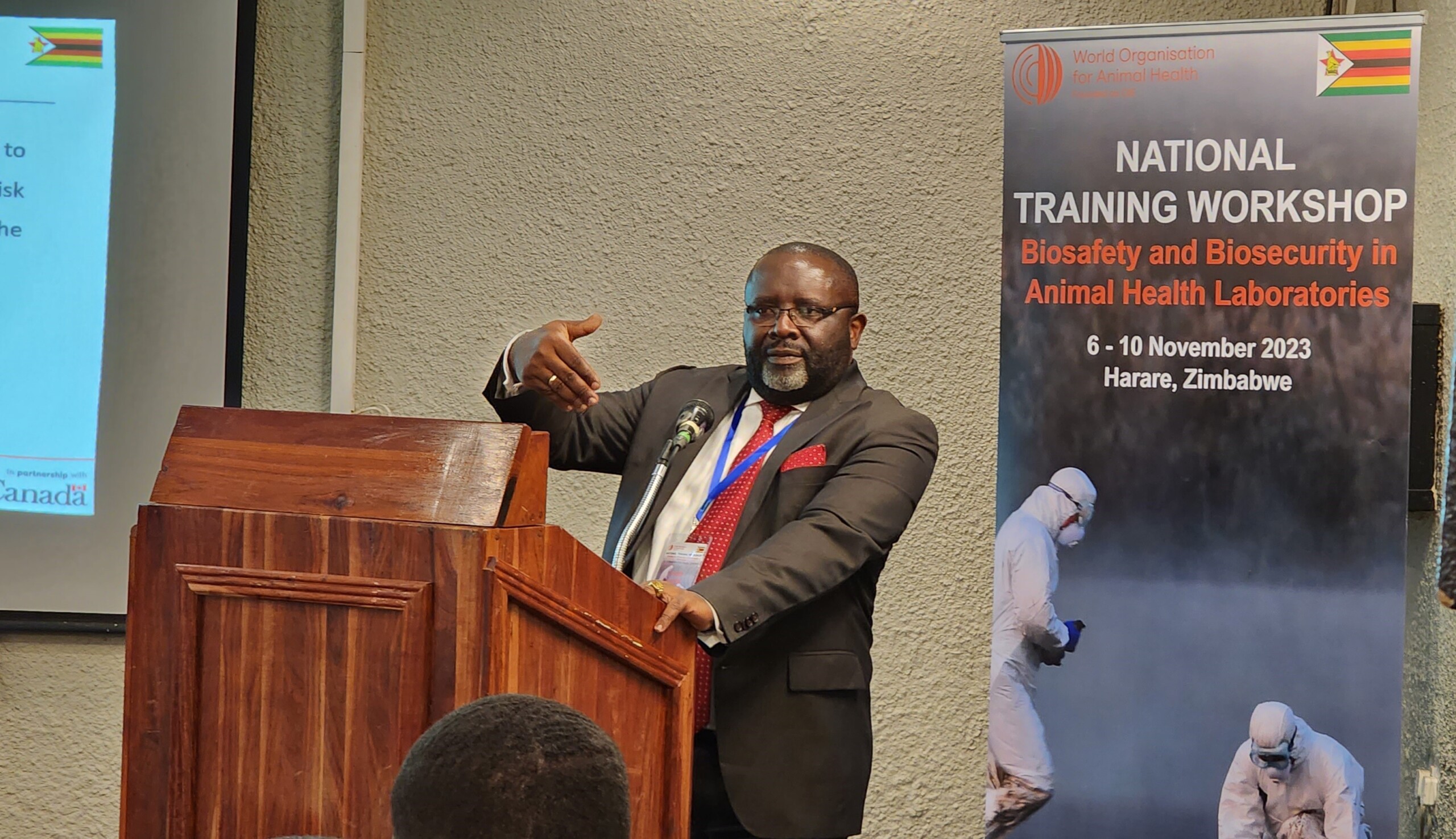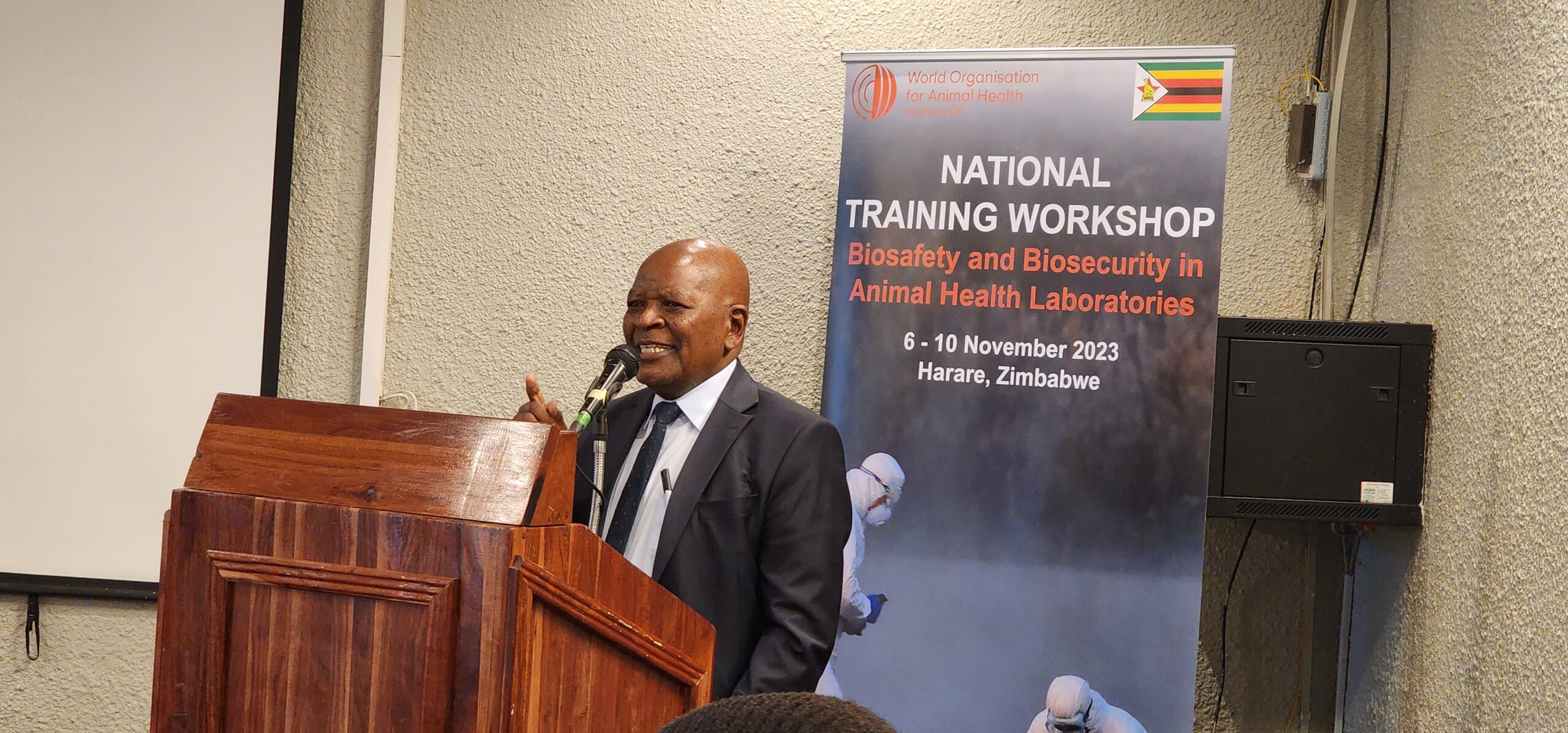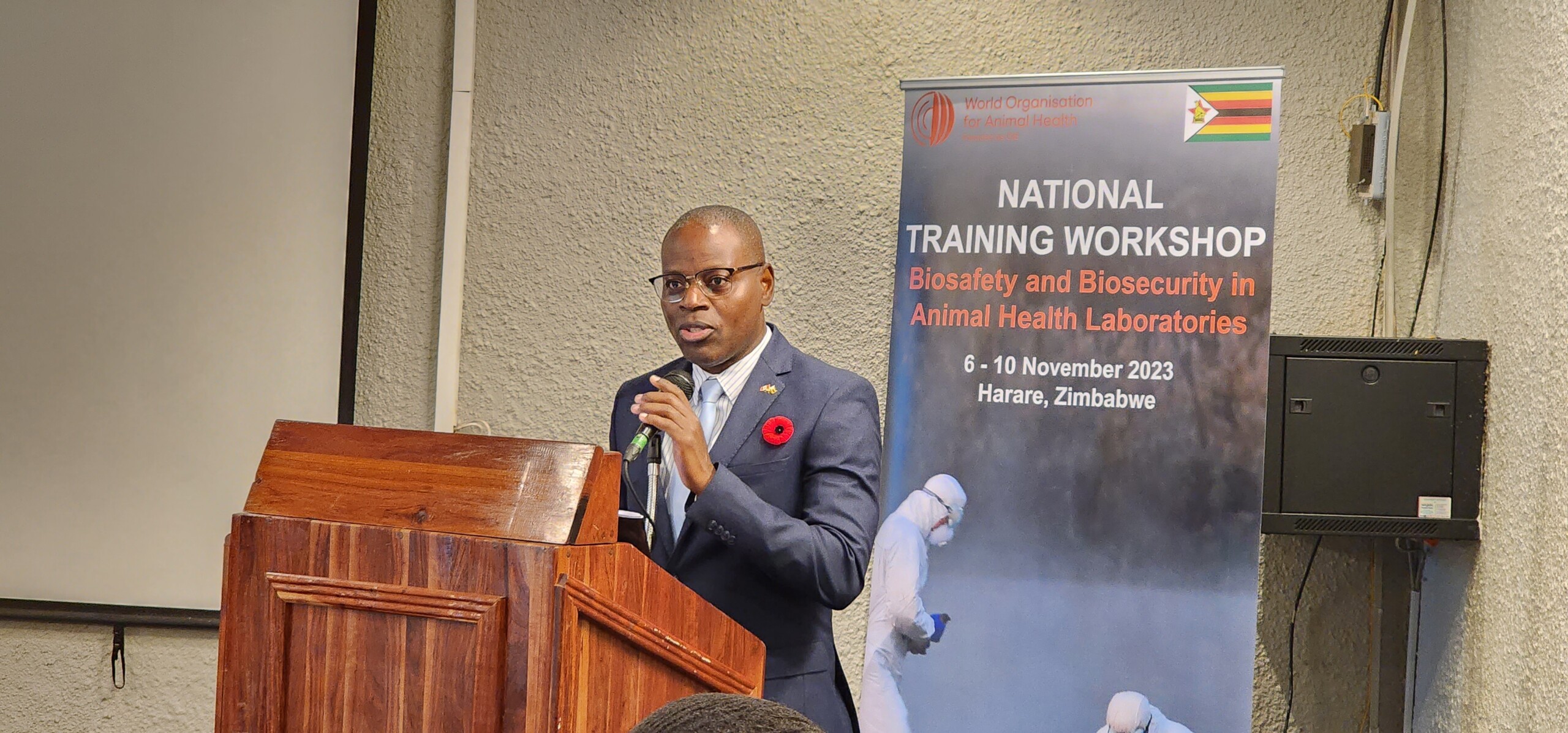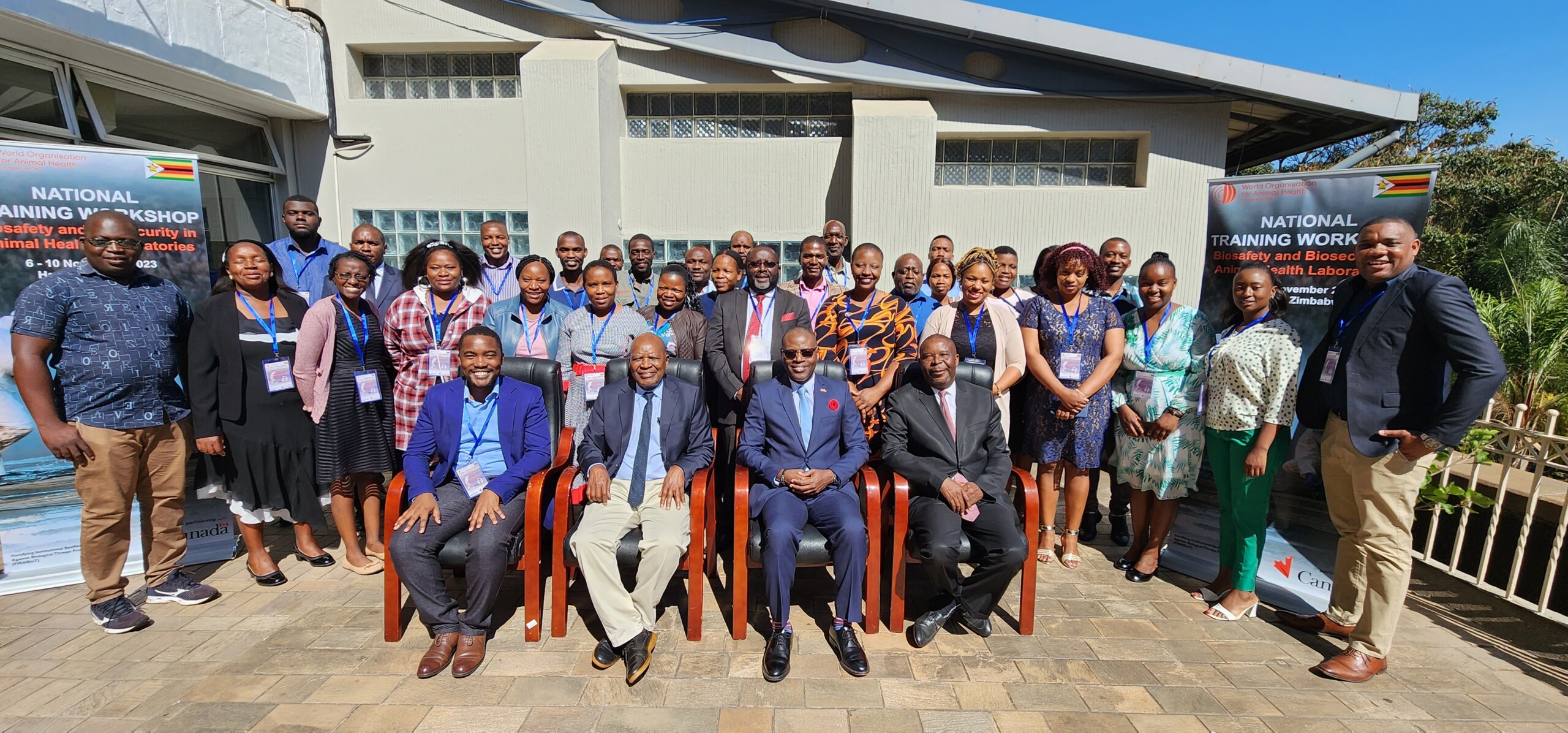
Zimbabwe’s Veterinary Services have recently received valuable training through a workshop organised by the World Organisation for Animal Health (WOAH) on biosafety and biosecurity in animal health laboratories. The workshop, which took place from 6-10 November 2023, in Harare, focused on providing technical personnel from Zimbabwe’s central and provincial veterinary laboratories with the necessary knowledge and skills to establish and implement a biorisk management system.
During the opening remarks, Dr. Josphat Nyika, the WOAH Delegate to Zimbabwe, expressed gratitude to the Canadian government for their support of the training. He emphasised that the initiative would enhance Zimbabwe’s national capacity to detect, respond to, and effectively manage biological threats. Dr. Nyika further highlighted that strengthening capacity in laboratory biosafety and biosecurity would instill confidence in the international community regarding the country’s research capabilities.
Dr. Josphat Nyika – the WOAH Delegate to Zimbabwe giving his opening remarks. Picture © I. Busuulwa (woah) 2023
His Excellency Adler Aristilde, the Ambassador of Canada to Zimbabwe delivering his opening remarks. Picture © I. Busuulwa (woah) 2023
In his opening remarks, His Excellency Adler Aristilde, the Ambassador of Canada to Zimbabwe, underscored the critical importance of building animal health emergency preparedness capacity. He emphasised that such preparedness is crucial for addressing threats posed by infectious diseases, whether they are natural, accidental, or deliberate in origin.
H.E. Adler Aristilde - Ambassador of Canada to Zimbabwe; High Commissioner of Canada to Malawi and to Botswana (Designate)
The training, which had a focus on biorisk assessment and the setup and implementation of a biorisk management system, was facilitated by experts from Zimbabwe’s Central Veterinary Laboratory and Africa CDC regional subject matter experts on biorisk management.
Participants expressed their gratitude to WOAH and Global Affairs Canada for organising the training. They highlighted that the training would enable them to review their laboratories’ biorisk mitigation strategies and the importance of sharing the acquired knowledge with other personnel.
The biosafety and biosecurity training is one of Zimbabwe’s activities as a beneficiary of the Fortifying Institutional Resilience Against Biological Threats (FIRABioT) project that is funded by Global Affairs Canada’s Weapons Threat Reduction Programme – in support of the Global Partnership Signature Initiative to Mitigate Biological Threats in Africa.






